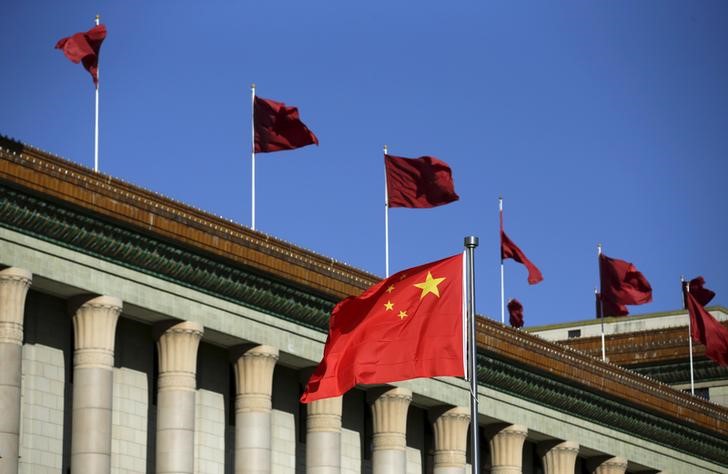By Ambar Warrick
Investing.com-- Chinese stocks bounced back from recent losses on Tuesday as new stimulus measures from Beijing helped offset concerns over economic disruptions caused by recent anti-government protests, with real estate stocks gaining the most.
The blue-chip Shanghai Shenzhen CSI 300 jumped 2.3%, recouping all of its losses on Monday and hitting an over one-week high. The Shanghai Composite index added 1.7% and traded at a near two-week high.
Gains spilled over into Hong Kong, with the Hang Seng index rallying 3.6% to a 10-day high.
Heavyweight property stocks were the best performers on all three indexes after China’s securities regulator lifted a years-long ban on equity financing for the beleaguered property sector.
The move offers a new line of funding for the beleaguered property sector, which accounts for nearly a quarter of the Chinese economy. Beijing had suspended equity financing options for the sector in 2009 in order to curb surging housing prices.
Shares of Country Garden Holdings Company Ltd (HK:2007), Longfor Properties Co Ltd (HK:0960), and Beijing Urban Construction Investment & Development Co Ltd (SS:600266) surged between 8% and 11%. The property sector was rattled by a series of high-profile debt defaults over the past two years, which also soured public sentiment toward the property market.
The new stimulus measures helped markets look past an escalation in anti-government protests, as an increasing number of Chinese civilians expressed discontent over Beijing’s strict zero-COVID policy.
Concerns over more economic disruptions from the protests rattled Asian markets on Monday, as China also grapples with a record-high daily increase in COVID-19 infections.
But some analysts opined that the protests will pressure the government into eventually relaxing its zero-COVID policy - a scenario that is positive for Chinese markets.
"'Unswervingly sticking to COVID-0' will increasingly sound like 'house is for living in, not for speculation'," Chinese economist Hao Hong said on Twitter.
The zero-COVID policy is at the heart of China’s economic woes this year, and also spurred heavy selling in its stock markets as a series of lockdowns ground business activity to a halt.
But the government has so far reiterated its commitment toward maintaining the policy, citing low vaccination rates and a lack of intensive care infrastructure.
